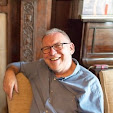"Nobody can meddle with fire or poison without being affected in some vulnerable spot; for the true physician does not stand outside his work but always in the thick of it..." (Jung, 1977: 5). This striking quote from Carl Jung acknowledges the vicarious trauma inherent in working in health and social care as well as the courage and resilience needed to follow such a vocation. I came across it in an excellent, recently-published book called Coping and Thriving in Nursing (Martin, 2018). It reminded me that, back in 1990, I'd reviewed a book called The Staff Nurse's Survival Guide (Horne, 1990) and I'm pleased to note that nurses are now being encouraged to cope and thrive rather than merely to survive.
Peter J Martin, the editor of Coping and Thriving in Nursing, explains in his introduction: "Our initial title used the word 'surviving' but ... we wanted to highlight that nurses can do more than survive... If nurses are coping and thriving, then they can discover or rediscover the satisfaction that led them into the job in the first place (and) then they are in a much stronger position to help people find a sense of hope in illness and adversity...." (Martin, 2018: 3). This is a similar argument to the one I make in my book Creativity, Wellbeing and Mental Health Practice, where I suggest that, if nurses can discover or rediscover creative ways of working, this can improve the wellbeing of service users and service providers alike (Gillam, 2018).
Coping and
Thriving in Nursing deals, in a very readable and pragmatic way, with
embracing change, reconnecting with our nursing values, the relationship
between nursing and mindfulness and developing self-compassion. I especially
liked the emphasis on the importance of kinship among healthcare staff.
We need to understand that suffering and sometimes feeling inadequate to the
task are shared experiences and that healthcare staff can support one another
by being compassionate to themselves and to each other. The authors recognise
that clinical workplace environments and healthcare organisations can be surprisingly
hostile and unconductive to the cultivation of kinship. This being the case, it
is all the more important that nurses and other health and social care
professionals are self-compassionate, seeking out mutual support, supervision
and connection. The book urges us to adopt an attitude of 'intelligent
kindness' that "unsentimentally values kinship and kindness, understanding
their creative power..." (Martin, 2018: 163). In the face of fire and
poison, such kinship, kindness and creativity can be powerful resources.
References
Gillam, T. (2018) Creativity, Wellbeing and Mental Health Practice. Basingstoke: Palgrave Macmillan.
Horne, E.M. (1990)The Staff Nurse's Survival Guide. London: Wolfe.
Jung, C.G. (1977) The Collected Works of C.G. Jung,
original from University of Minnesota. New York: Pantheon Books.
Martin, P.J. (ed.) (2018) Coping and Thriving in Nursing.
London: Sage.




